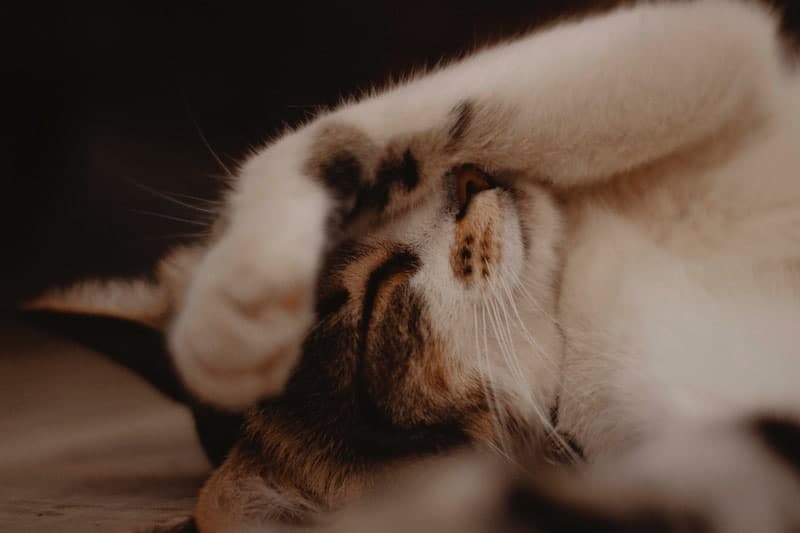You know how unpleasant it can be when your feline friend starts to smell bad, especially if they like to jump into your lap. While cats are generally meticulously groomed creatures, sometimes they need a little help staying fresh and clean.
While there can be many explanations for a bad-smelling feline, it’s important to figure out the source of the problem so you can help your cat feel better. A foul feline smell may indicate the presence of a serious health problem, so it’s crucial to track down the source of the stench and address the underlying issue quickly.
In this article, we’ll explore more common causes of bad cat smells and what you can do about them.
The most common causes of bad cat smells can be related to:
Mouth Odors
Cats are renowned for being fastidious groomers, but sometimes even the most diligent cat may smell bad. While a bad smell coming from your cat’s mouth is often caused by dental problems, it can also be a sign of other health issues. It’s one thing if your feline has bad breath after a can of particularly stinky cat food: however, if you notice a persistent unpleasant odor coming from your cat’s mouth, the first thing you should do is take them to the vet for a checkup.
1. Dental Disease
Dental disease in cats is a common condition that can lead to mouth odor. The most prevalent form of dental disease in cats is periodontal disease, which is caused by the accumulation of plaque and tartar on the teeth. Periodontal disease can start as gingivitis, which is an inflammation of the gums. If left untreated, periodontal disease can progress to tooth loss and other serious health problems.
There are various measures that you can take to help prevent dental disease in your cat. First, make sure that you are providing your cat with regular dental care, including brushing their teeth and using special dental products designed for cats. You should also take your cat to get dental checkups and professional cleanings at least once a year or more often if needed.
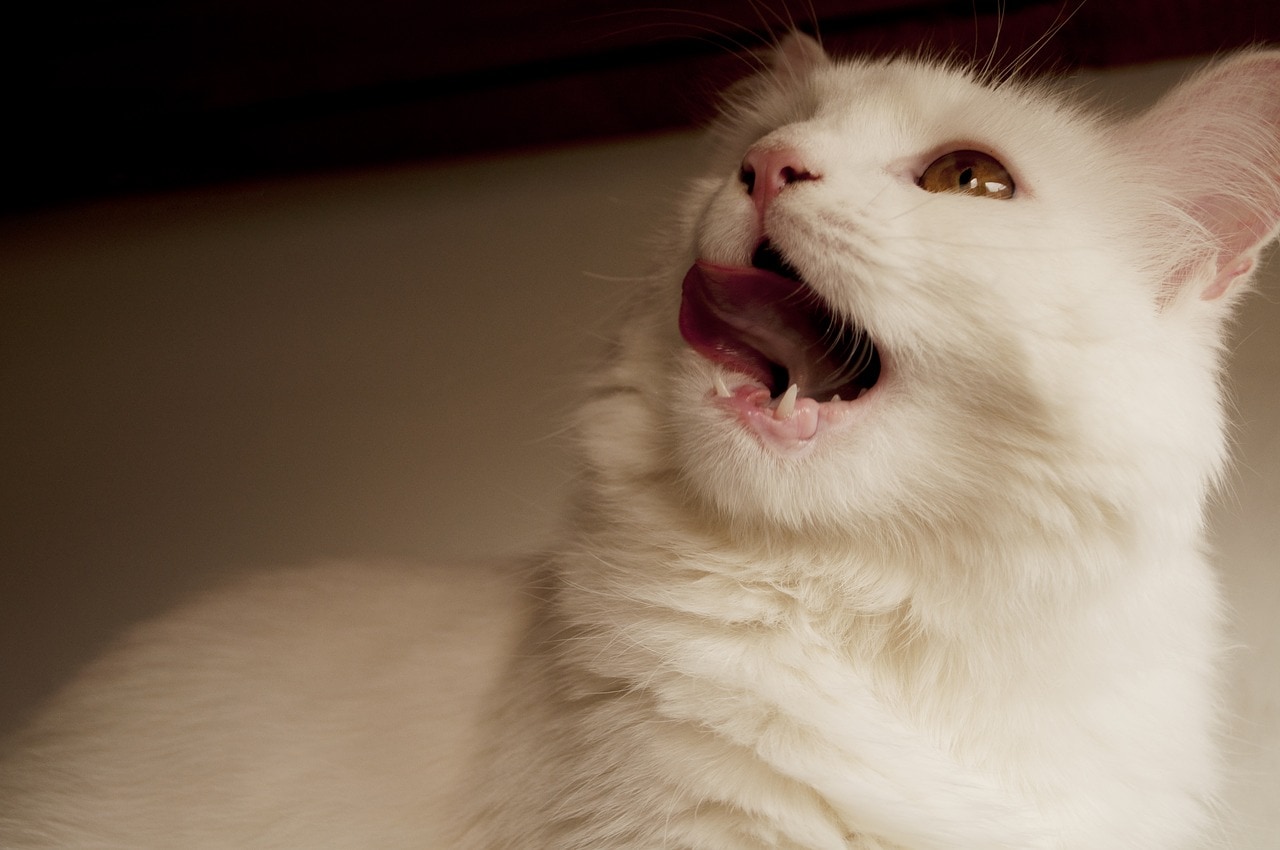
2. Kidney Disease
One of the most noticeable signs of kidney disease in cats is mouth odor. The kidneys play an important role in filtering toxins out of the blood, and when they are not functioning properly, these toxins can build up in the body and can cause bad breath. Kidney disease can also cause a build-up of toxins in the saliva, which can lead to a foul smell coming from the mouth. The buildup of bacteria and toxins in a cat’s saliva can lead to a foul smell coming from their mouth.
There are a number of other signs that can accompany kidney disease in cats, including weight loss, increased thirst, and more frequent urination. If you notice any of these signs, it’s important to take your cat to the vet for a check-up. Early diagnosis and treatment are essential for managing kidney disease and keeping your cat healthy.
3. Diabetes
Diabetes in cats is a serious condition that can lead to a number of health problems, including mouth odor. It can also cause a dangerous condition known as ketoacidosis, which is accompanied by a characteristic acetone or fruity smell; this needs emergency attention. In addition, diabetes can cause dry mouth, which can also contribute to mouth odor.
If you suspect your cat may have diabetes, it is important to take them to the vet for an evaluation.
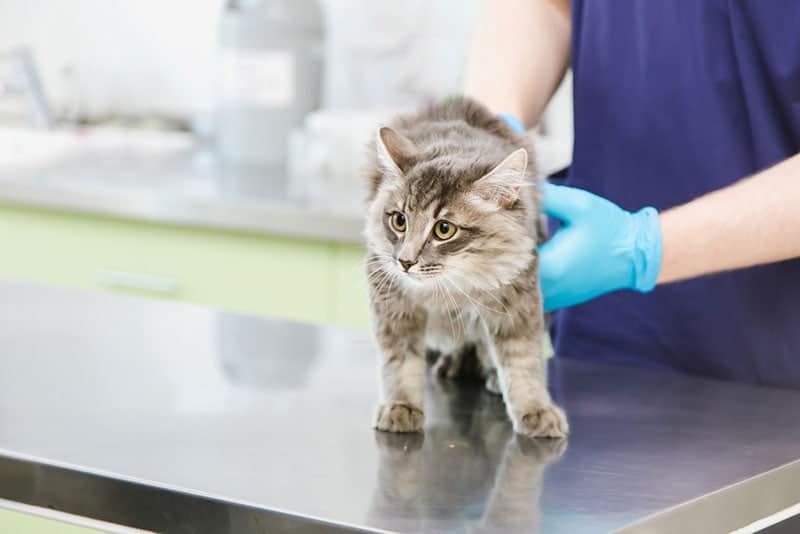
4. Trauma and Infections
Mouth trauma in cats can be a cause of mouth odor. The most common type of mouth trauma is when another cat bites your cat’s tongue or lip. This can cause an open wound which in turn can lead to an infection. If the injury is not treated promptly, it can become infected and abscessed, leading to a foul odor.
5. Oral Tumors
A less common cause of stinky mouth odor may be an oral tumor. While not all tumors are cancerous, they can still cause a foul smell due to the build-up of food and bacteria. Oral tumors can be difficult to spot because they’re often hidden behind the teeth. However, you may notice your cat drooling more than usual or having difficulty eating.
Skin Problems
Common problems that can cause odor in cats are skin issues. If your cat is scratching a lot or seems to be in pain, it’s important to take them to the vet to get checked out. In some cases, skin problems can be resolved with a change of diet, medication, or other treatments, but others may require more intensive care.
6. Bacterial Infection
Bacterial infections in cats are common occurrences and can cause a variety of signs, including skin odor. The most common type of bacterial infection in cats is pyoderma, which is commonly caused by the bacteria Staphylococcus aureus. Pyoderma can cause crusting, ulceration, and hair loss in the affected area of the skin. Treatment of pyoderma typically involves antibiotics and topical therapy.
Bacterial infections of the skin can be uncomfortable for your cat and may lead to secondary infections if left untreated. The smell of bacterial infections is usually unpleasant, but it may be sweet, depending on the organism involved.
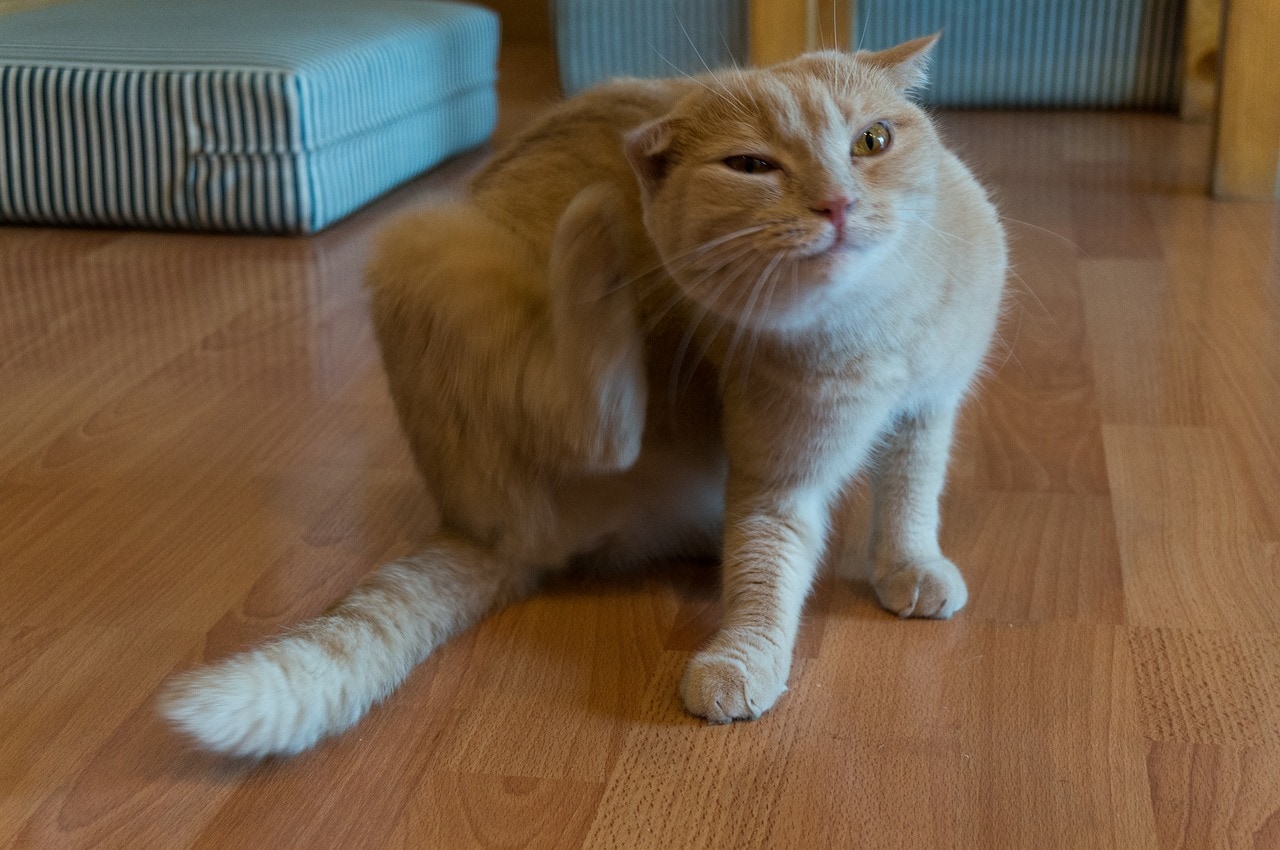
7. Yeast Overgrowth
Yeast overgrowth is a common issue in cats that can cause a variety of skin problems. The most common sign of yeast overgrowth is a musty smell. It can also cause itching, scaling, redness, and hair loss. Inflammatory skin disease due to environmental allergies, food intolerances, and/or flea allergy dermatitis are common causes of yeast overgrowth in cats.
There are several treatment options available, but the primary cause must be diagnosed in order to determine an effective treatment, so it is vital to get your cat to the vet.
8. Abscess
An abscess is a pus-filled sac that forms under the skin. Abscesses are most commonly found on the head, neck, and back end of a cat. They can be caused by bites from other animals, fighting, or scratches. The infection causes the skin to become red, hot, and swollen. If an abscess bursts, it can cause a very foul odor. Treatment for an abscess includes antibiotics, debridement, and draining the pus, and in some cases, your veterinarian may even need to perform surgery.
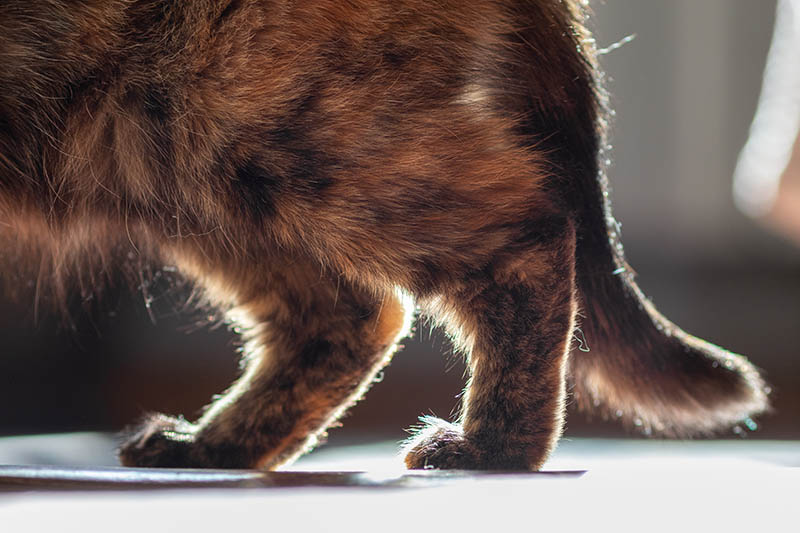
9. Arthritis
Arthritis in cats is a common condition that can cause a number of problems, including skin odor. There are many different types of arthritis that can affect cats, and the most common type is osteoarthritis. This is a degenerative disease that causes the cartilage in the joints to break down. This can lead to pain, stiffness, and inflammation. Cats with arthritis often have trouble grooming themselves properly, which can lead to an increase in skin odor.
In some cases, the arthritis may be so severe that the cat stops grooming altogether. This can make the skin even more susceptible to bacteria and fungus, which can further worsen the odor.
10. Obesity
Cats with excess weight are more likely to suffer from skin problems like dermatitis and infections. This is partly because their skin often has more folds, which can trap dirt, moisture, and bacteria. Additionally, obese cats may suffer from a loss of flexibility and won’t be able to reach themselves to properly groom. As a result, obese cats are more likely to have an unpleasant odor.
In some cases, effective weight loss may require a gradual change in diet and lifestyle. But with the right care, your cat can enjoy a healthy and pleasant-smelling life.
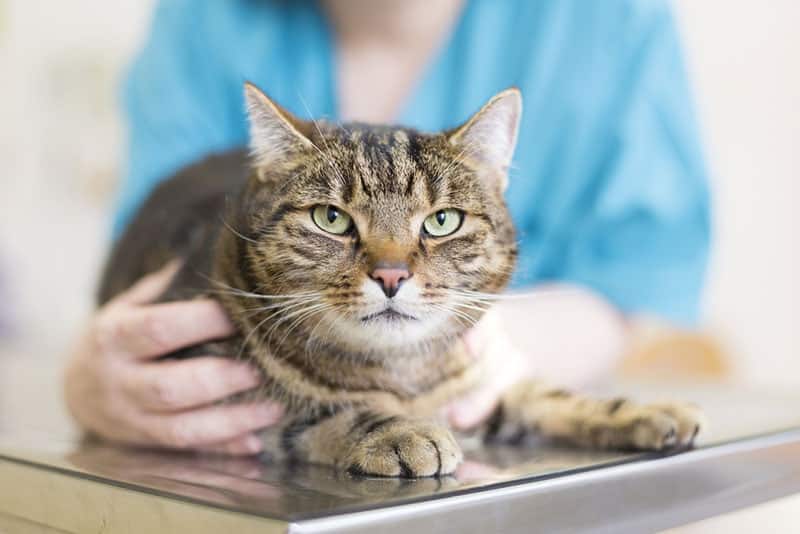
11. Depression
Depression in cats can be difficult to spot. Many people don’t realize that their cat may be depressed because they continue to eat and sleep as normally. However, some subtle changes may occur, such as a loss of interest in playing or grooming. One sign that your cat is depressed is if they start to develop a skin odor.
Cats groom themselves regularly to keep their fur clean and free of debris. If your cat stops grooming themselves, it could be a sign that they are depressed. Depression can cause a decrease in appetite, which can lead to poor nutrition and an unhealthy coat. When the fur isn’t being properly cared for, it can start to smell bad.
If your pet is prone to shedding, Hepper's Oatmeal Pet Shampoo can help reduce it. This gentle, natural formula is designed to help keep your pet's coat healthy and reduce shedding. Click here to order yours today At Catster, we’ve admired Hepper for many years and decided to take a controlling ownership interest so that we could benefit from the outstanding designs of this cool cat company!
Ear Ailments
While a cat’s ears are self-cleaning, they can still accumulate wax, debris, and moisture—all of which can lead to an unpleasant smell. If your cat’s ears smell bad, it could be a sign of an underlying health condition. Here’s what you need to know about feline ear odor and how to treat it.
12. Infections
Many cats will develop an ear infection at some point in their lives, and the vast majority of these infections are caused by bacteria or yeast. Ear infections can be painful and uncomfortable for your cat, and they can also lead to a foul odor emanating from your cat’s ears.
In most cases, ear infections can be easily resolved with antibiotics or antifungal medications. However, if left untreated, ear infections can cause serious health problems for your cat.
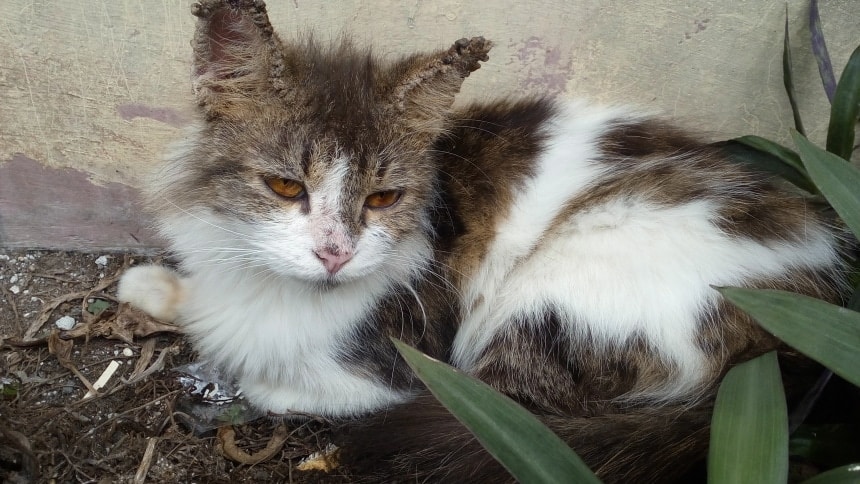
13. Parasites
The ear canals of animals can be infested by tiny parasites known as ear mites. They are most commonly found in cats, but can also be found in dogs, rabbits, and ferrets. Ear mites consume the wax and oil in the ear canal and can cause irritation, redness, and a foul-smelling black or brown discharge. In severe cases, they can also cause deafness.
Treatment typically involves cleaning the ears and applying medication to kill the mites.
Rear-End Issues
There’s a lot happening in and around your cat’s butt! Rear-end problems in cats can be caused by a number of issues that could lead to an odor.
14. Mobility and Flexibility Issues
Butt odor in cats can be caused by mobility and flexibility issues. When a cat can’t reach their backside to groom properly, the hair can become matted, and trapped fecal matter and bacteria can cause an odor. Mobility and flexibility issues can often be resolved with diet changes, physical therapy, or massage, depending on the underlying cause. Regular grooming by you or a professional will also help keep your cat’s backside clean and free of odor.
15. Diarrhea
Diarrhea can cause butt odor in cats. When your cat has diarrhea, the watery stool can leak out and cause a bad smell. Diarrhea may get caught up in your cat’s hair. If your cat’s diarrhea is left untreated, it can lead to dehydration and other health problems.
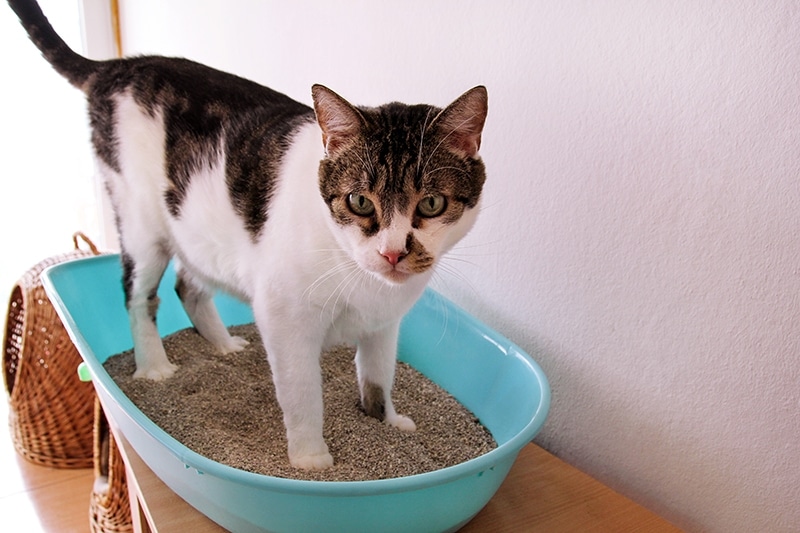
16. Anal Glands
The cat’s anal area has glands that produce a strong, musky scent. This is the cat’s way of marking their territory and showing other cats who is in charge. If you notice your cat’s bottom smells particularly strong, it may be due to these glands. They are positioned close to the anus and can produce a strong and unpleasant smell.
Not many pet parents are aware that cats have these glands, but if your cat becomes stressed or excited, they are likely to release their contents. There are many who find the smell unbearable, but if it only occurs occasionally, it is nothing to worry about. However, if this strong smell is new, does not seem to go away, and is accompanied by signs of your cat licking, scratching, or dragging their butt, please get your pet checked by the vet.
Conclusion
If your cat smells bad, it could be due to several reasons. If it is only temporary, it can be due to something that they ate. Another common reason is that they are not able to properly groom themselves. A smelly cat could also have an underlying health condition, especially if the odor persists. If you are concerned about your cat’s bad smell, take them to the vet to rule out any health problems.
Featured Image Credit: Elias Jara, Pexels

